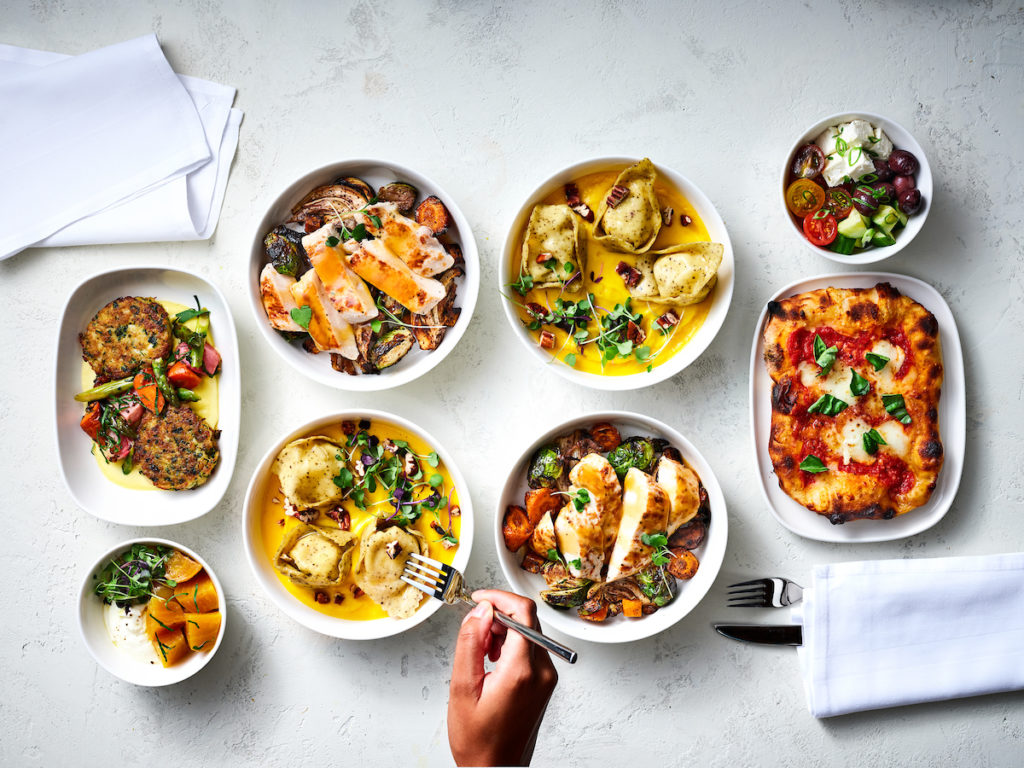Sustainable Inflight Menus Takeoff
Share

Sustainable menu choices take flight like never before as airlines return to full-service meal options inflight.
After two-plus years of individually-wrapped snacks and/or no inflight foodservice to speak of, full-service meal options are back and better than ever. Taking a cue from the pandemic-era push towards cleaner, greener living and sustainability, airlines around the globe have been livening up their inflight meal options with a host of sustainable menu items.
Last month, Delta Airlines coupled the resumption of hot meal service for Delta One and First Class customers on select flights with an infusion of vegetarian and plant-based meals. Partnering with Impossible Foods to bring such hugely-popular options as the Impossible Burger and Impossible Meatballs made with Plants to their passengers, Delta also teamed up with cheeky newcomer Black Sheep Foods to do the same. Looking to “raise the baa” to become the world’s leading purveyor of plant-based wild and heritage meats, Black Sheep Foods’ Greek-inspired, plant-based lamb meatballs served with spinach, rice, and feta took flight last month on Delta as well.
Not to be outdone, international carriers like Qatar Airways and All Nippon Airways (ANA) have also recently launched healthier, meat-free and sustainable meals with less fat and fewer calories for their health-conscious passengers. ANA is even offering economy class passengers on outbound international flights salads including soft kale grown from ANA’s composting operations.
Working with Qatar Airways‘ head chef, Mary-Jane Bonnaud, Qatar took a bit of a different approach to sustainability by focusing on the local culinary culture in each of their gateway cities to create one-of-a-kind menus highlighting locally-sourced delicacies.
“When creating the menu, we wanted to remain true to our key pillars and make delicious foods that are authentic, contemporary, sustainable and locally loved,” said Bonnaud. “We created dishes that are true to the local culture, unique and healthy … to create a menu that will encourage travelers to rethink what dining in-flight can look like.”
And though the jury may still be out on how this trend will play with frequent-flyer foodies — especially in counties used to eating real meat — Dr. Stathis Kefallonitis, the Associate Professor of Passenger Intelligence at Embry-Riddle Aeronautical University, told APEX Media that this change has been a long time coming.
“The range of inflight food products being diversified right now has been really exciting, particularly for passengers looking for healthier options when they fly. Plant-based and non-meat alternatives have really exploded, not just in the North American market but everywhere. Healthy snacking too,” says Kefallonitis.
And when it comes to innovation on all fronts, Kefallonitis said the future is wide open.
“The pandemic has created so many opportunities for rethinking the value proposition for airlines. What do we give to the passenger? What do we give them in terms of food and beverage? What really adds value?” Kefallonitis says. “Rethinking food and beverage options is a big part of that.”


